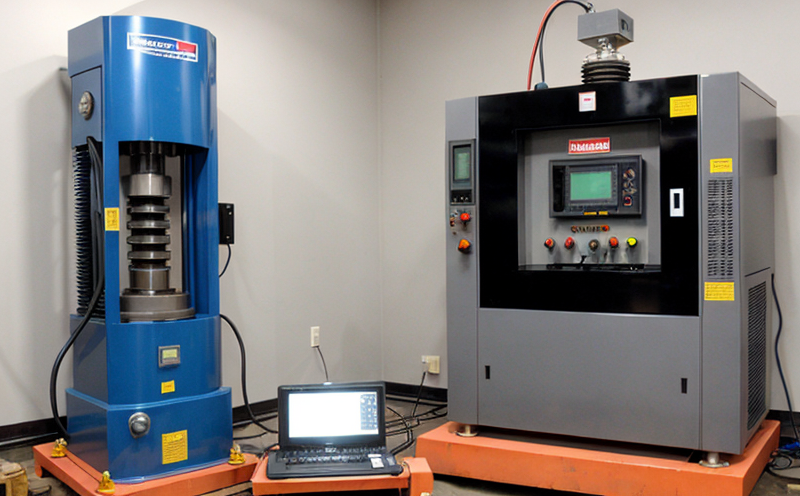RTCA DO 160 Section 7 Vibration Test
The RTCA/DO-160 standard is one of the most comprehensive guidelines for environmental testing, particularly in aviation electronics. This standard provides a set of procedures and criteria to ensure that electronic equipment can withstand various environmental stresses encountered during aircraft operations. One key section within this standard focuses on mechanical shock and vibration tests, specifically addressing the effects of these forces on avionics.
RTCA DO-160 Section 7 is dedicated to the testing of components for their ability to endure vibration environments. Vibration can be caused by various factors such as engine operation, turbulence during flight, and other mechanical interactions within the aircraft structure. Ensuring that avionics are capable of withstanding these vibrations ensures the reliability and safety of the equipment.
The test setup typically involves placing the component under test into a vibration chamber where it is subjected to controlled frequency, amplitude, and duration cycles. The purpose is to simulate real-world conditions experienced by the device during flight. The frequency range tested can vary depending on the specific requirements but generally covers from 0.5 Hz up to 1500 Hz.
Preparation of the specimen involves careful alignment with the defined test parameters, ensuring that all connections are secure and that any loose parts have been removed or secured in place. This ensures accurate results during testing. Once prepared, the component is placed into the vibration chamber where it undergoes a series of cycles designed to replicate actual flight conditions.
The resulting data provides valuable insights into how well the device performs under these simulated conditions. Engineers can then use this information to identify potential weaknesses or areas for improvement in future designs. Additionally, compliance with RTCA DO-160 Section 7 is crucial for manufacturers aiming to meet regulatory requirements and gain market acceptance.
| Standard | Description |
|---|---|
| RTCA/DO-160 | The comprehensive standard for environmental testing of airborne electronic, electrical, and electromechanical equipment. |
| Section 7 | Focuses specifically on mechanical shock and vibration testing to ensure reliability under real-world conditions. |
This section of the standard ensures that electronic components are robust enough to function correctly throughout their intended lifecycle, even when subjected to harsh environmental factors. By adhering to these stringent tests, manufacturers can demonstrate compliance with industry best practices and regulatory requirements.
Applied Standards
| Standard | Description |
|---|---|
| RTCA/DO-160 | The comprehensive standard for environmental testing of airborne electronic, electrical, and electromechanical equipment. |
| Section 7 | Focuses specifically on mechanical shock and vibration testing to ensure reliability under real-world conditions. |
Why Choose This Test
- Ensures compliance with industry standards for avionics and other electronic components.
- Guarantees durability against mechanical shocks and vibrations encountered during flight.
- Provides critical data to improve product design and reliability.
- Aids in regulatory approval processes by demonstrating adherence to best practices.
International Acceptance and Recognition
The RTCA/DO-160 standard is widely recognized across the aerospace industry for its rigor and comprehensive approach to environmental testing. Compliance with this standard ensures that products meet stringent quality control measures, which is essential given the safety-critical nature of avionics.
Many global aviation authorities accept tests conducted according to RTCA/DO-160 as meeting their own requirements for certification. This acceptance helps streamline the process for manufacturers seeking approval from multiple jurisdictions without having to conduct separate tests elsewhere.





